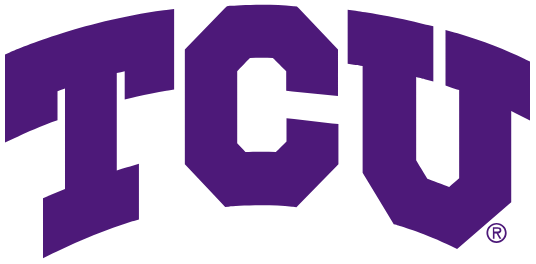Changing the Game:
How One University Is Teaching Students to Tackle NIL
An innovative partnership between TCU’s business school and athletics department around the new name, image, and likeness rules in college sports is turning a new generation of college students into entrepreneurs.
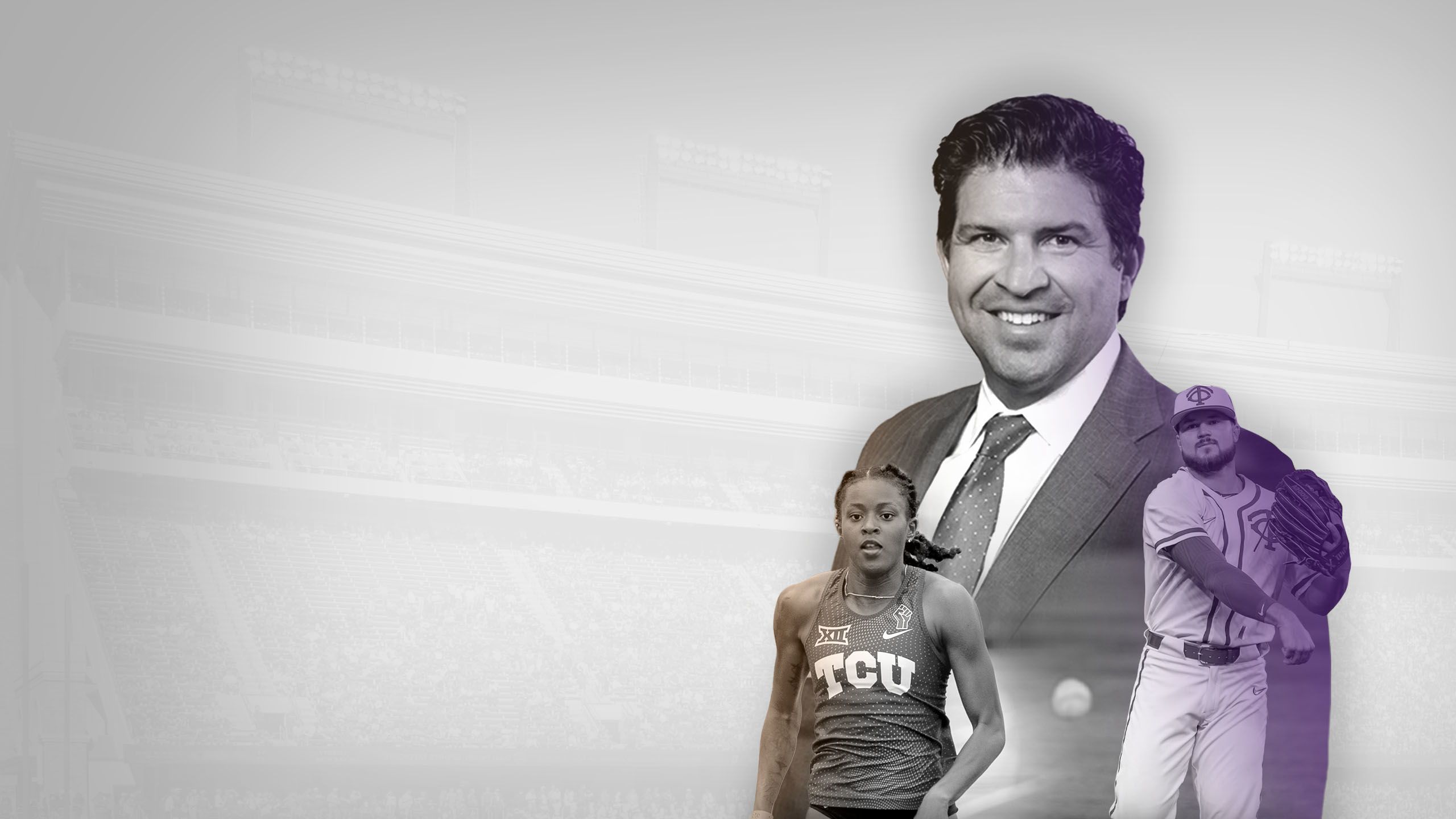
When the rules prohibiting NCAA athletes from making money from their fame were repealed, it opened the door for nearly half a million students across all college sports to profit off their names, images and likenesses.
At Texas Christian University, this massive reform instantly transformed its 560 student-athletes into entrepreneurs. But instead of being caught off guard, TCU was ready to help its students thrive in this disruptive new sports and business landscape.
Two years before these new name, image and likeness (NIL) rules took effect, the university’s successful athletics program and highly-rated business school had sensed a market change and began to invest time and talent into building a new infrastructure around NIL. This innovative cross-disciplinary partnership gave athletes and non-athletes alike the knowledge and skills to navigate this new world and unleash their business and leadership potential.
This proactive partnership proved valuable: In the first year under these new rules, about a third of TCU’s student-athletes have already signed NIL deals.
“I felt like the culture was right for us to explore this entrepreneurial pasture as the world of intercollegiate athletics was changing,” said Daniel Pullin, the John V. Roach Dean of TCU’s Neeley School of Business.
A productive partnership
The groundwork for TCU’s NIL program began back in 2019. On his second day on the job, Pullin had a very productive lunch with Jeremiah Donati, TCU’s new director of intercollegiate athletics.
The two had a lot in common. They were about the same age, they both had law degrees, and both led successful enterprises. TCU Athletics has made huge strides in the past three decades and now competes in the Big 12 Conference, one of the nation’s premier collegiate athletic conferences. The business school, meanwhile, offers multiple nationally-ranked programs; Poets&Quants recently named its undergraduate business program one of the top 20 in the nation.
The private university of about 12,000 students had one more advantage: Its location in Fort Worth, part of a large and fast-growing metropolitan area, would provide plenty of potential business opportunities for TCU student-athletes
Both leaders had been keeping tabs on the NIL debate bubbling up in courthouses and statehouses around the country. At a university known for its enterprising spirit, they decided to work together to find an entrepreneurial response to this potential far-reaching change.
Over the next two years, TCU Athletics and the Neeley School of Business built relationships and increased collaboration with each other and the Dallas-Fort Worth business community. They also came up with an action plan in case student-athletes were allowed to pursue sponsorships, endorsement deals and other money-making ventures that had long been prohibited. The NCAA’s rule changes and new laws in several states, including Texas, took effect July 1, 2021.
How Collaboration and Innovation Built TCU's NIL Program
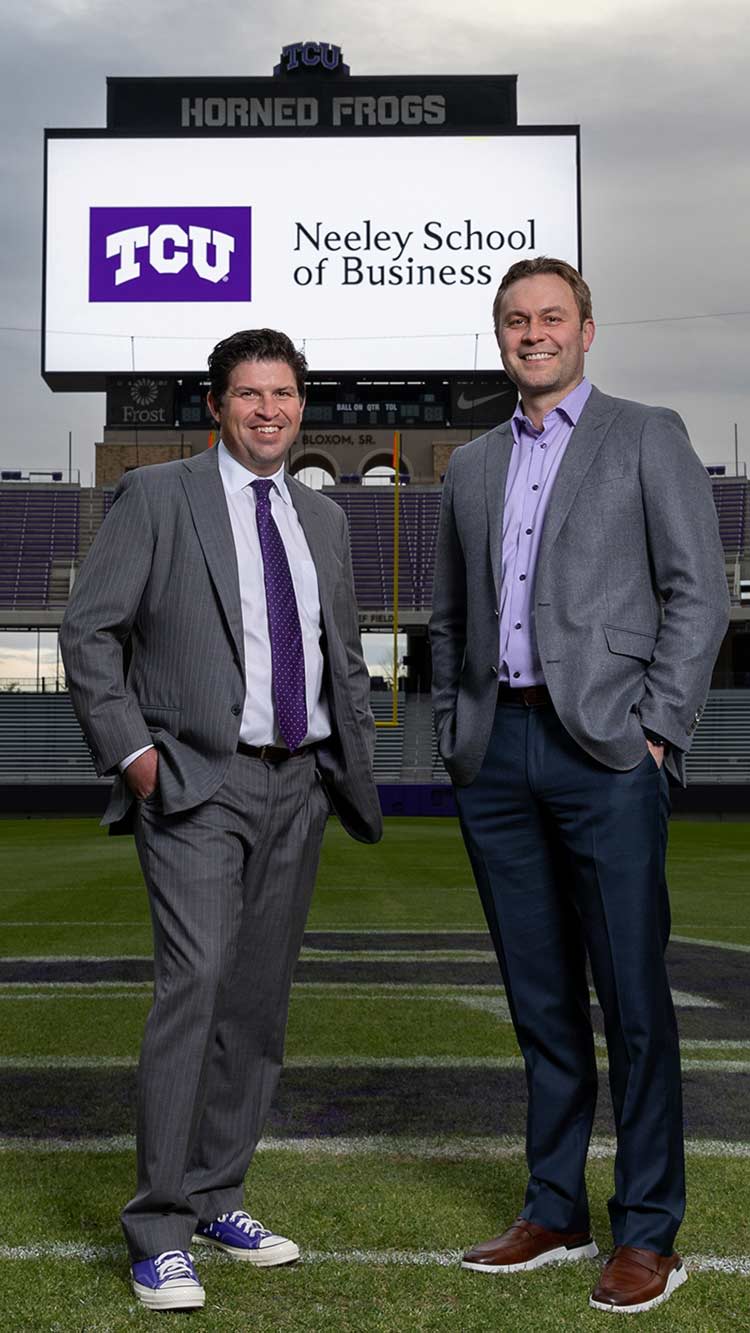
Daniel Pullin, John V. Roach Dean of the TCU Neeley School of Business (left) and Jeremiah Donati, TCU Director of Intercollegiate Athletics (right).
Daniel Pullin, John V. Roach Dean of the TCU Neeley School of Business (left) and Jeremiah Donati, TCU Director of Intercollegiate Athletics (right).
For athletics, having a strong NIL plan was crucial. “It’s one of the first questions out of every parent’s mouth: What’s your NIL strategy?” Donati told a TCU business leadership summit last fall. “... If you don’t have an NIL strategy, you’re going to get killed in recruiting.”
For Neeley, Pullin said, the NIL partnership has broadened the school’s reach on campus. For the university, he added, a comprehensive NIL strategy had the potential to increase the value proposition of attending TCU, improve post-graduation placement outcomes for students exposed to the NIL curriculum and lift the academic profile of TCU as a whole.
“If we’re able to position our student-athletes to be business leaders and leaders in their communities using business principles long after their playing days are over, then we’ve done something really positive for the individual,” Pullin said. “It’s really about what that individual can mean to society as a whole.”
A game-changer
Here’s what TCU did to help its students navigate the new NIL landscape.
The first education piece was the NIL Accelerator — a series of workshops for student-athletes. Originally offered during the fall semester and taught by TCU business school faculty, student-athletes earned certificates after completing each two-hour session. Because athletes have complicated schedules, the workshops were scheduled around their classes, practices, games and out-of-town trips. To save student-athletes a cross-campus trek to the business school, sessions were held in a suite overlooking the south end zone of the football stadium, which sits in the middle of TCU’s athletic complex.
How Neeley's NIL Class Prepares Student Entrepreneurs
The workshops offer credentials in seven topics, including business formation, tax and legal issues, personal brand-building and cryptocurrency and non-fungible tokens, or NFTs.
Threaded through all sessions is the concept of risk management. Pullin said the workshops teach what can go right — and wrong — so students can learn how to be what he called “the best risk-adjusted problem solvers possible.”
Because so much of brand management and audience-building involves students being active on social media, there’s also a workshop on mental health and well-being.
“Social media can cut both ways,” Pullin said. “We want to make sure from a wellness perspective that our students are prepared to understand that and deal with that and not be paralyzed by it.”
Pullin said this intentional approach is an example of what good businesses do: They take their product to the intended audience. And TCU student-athletes responded: More than 300 have taken at least one NIL Accelerator workshop.
“It’s not just about dollars and cents,” Pullin said of the NIL Accelerator. “It’s about preparing the whole human for a career and a life.”
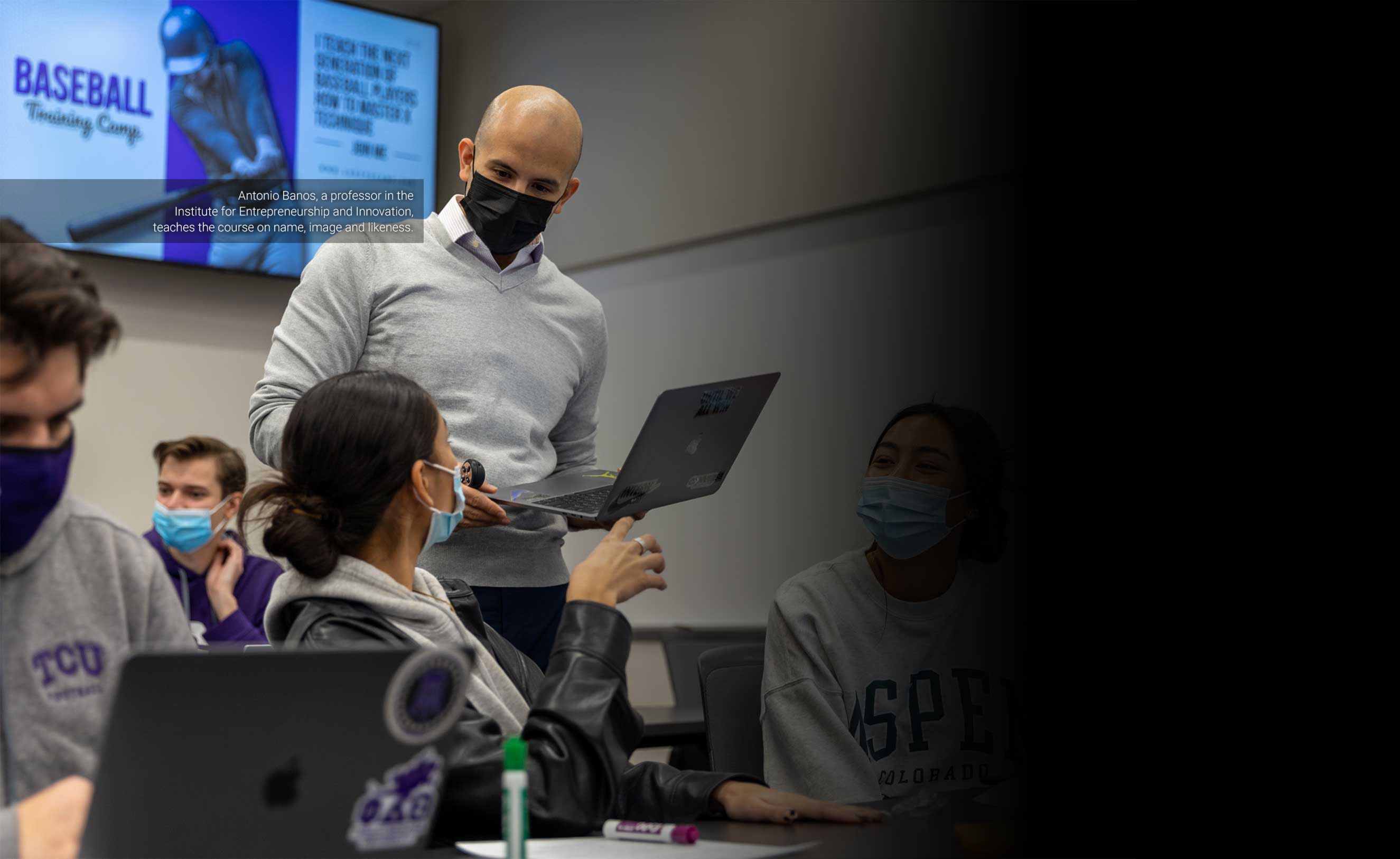
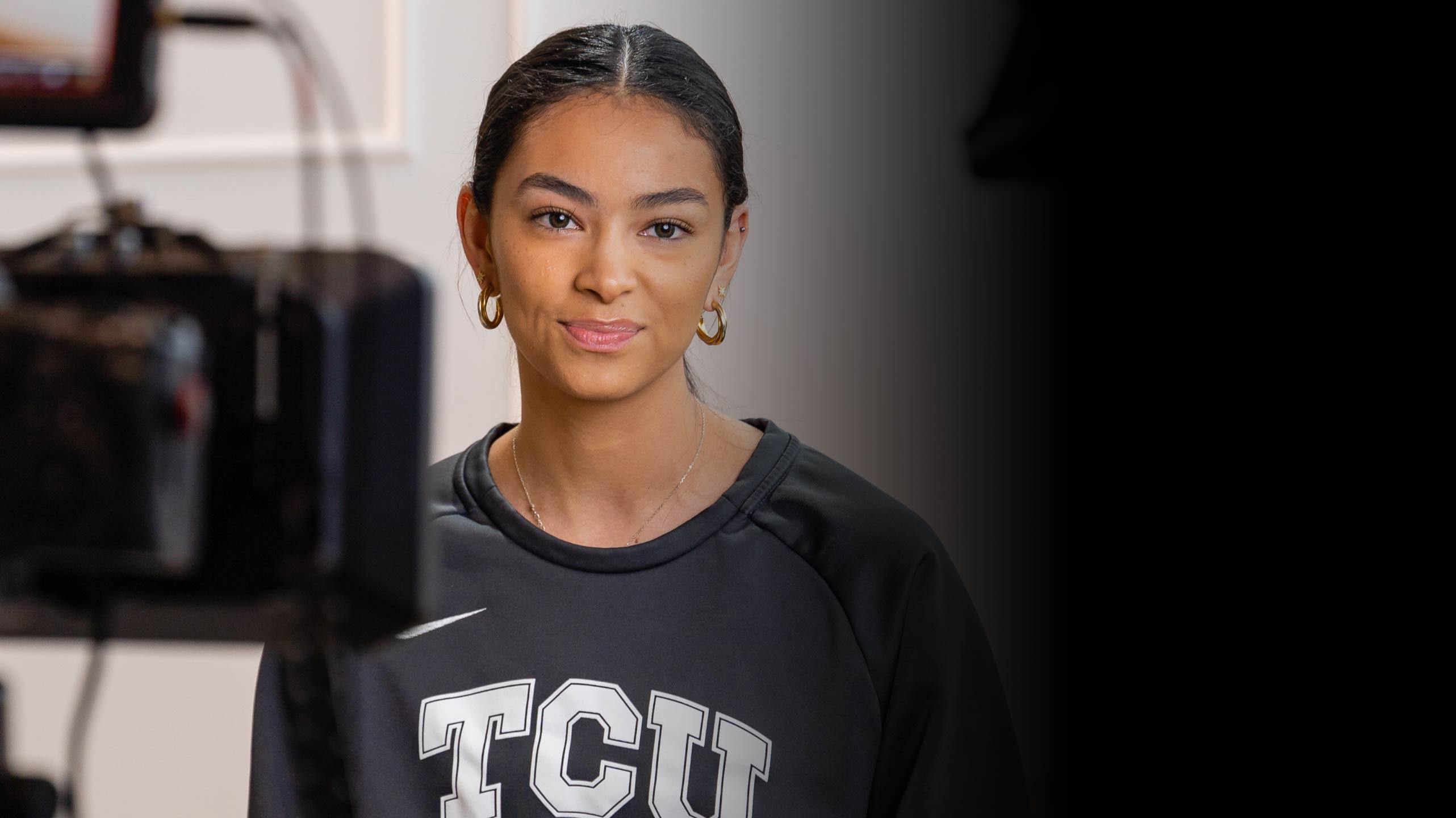
The next evolution
For the spring semester, the Neeley School of Business responded to student interest and market demand by introducing a for-credit elective course open to any TCU student. This robust new semester-long course goes deeper and covers more topics than the NIL Accelerator. Unlike the workshops, the new class was open to all TCU students — not just athletes— regardless of major. The course proved popular: Less than 24 hours after registration opened, all 47 seats were claimed.
Pullin calls the professor teaching the course well-suited for the role. Antonio Banos is TCU’s Bloxom Foundation Professor of Sports Entrepreneurship and assistant director of the university’s Institute for Entrepreneurship and Innovation. He’s also a former NCAA Division I swimmer and an entrepreneur who worked in the private sector before joining TCU’s faculty.
Designing TCU's Name, Image and Likeness Class
Having a formal course structure does several positive things, Pullin said. Among them: The class can bring in guest lecturers from the local business community, which further strengthens those connections. It also gives TCU a formal mechanism to ensure that it stays on the leading edge of fast-moving NIL issues so the university doesn’t lose its head start. The business school plans to keep its lead by offering the course again in the summer and expanding it to two sections next fall.
Students said the course has taught them valuable business lessons they can apply to NIL deals and many other areas.
"Professor Banos is always telling us to play the infinite game in terms of what we get out of this class," said Bri Gonzalez, a senior who competes on TCU's equestrian team. "The insight I'm getting is essential."
Antonio Banos Explains What Makes TCU's NIL Class Unique
Madi Cole, who plays volleyball for TCU, said the Neeley NIL curriculum has already made a big difference in her life.
“After applying some of the lessons learned so far this semester, I signed a five-figure NIL deal,” Cole said. “I feel confident as I'm continuing to build my entrepreneurial brand."
TCU’s approach to NIL is more than just brand-building and contract-signing. Pullin said it’s about giving all students business knowledge and skills, helping them expand their networks on and off campus and boosting their confidence.
“If you can dream it, you can do it, both here at TCU and beyond the walls of this institution,” Pullin said. “Hopefully this will give students a real running start to controlling more of their own futures.”
Managing Your Personal Brand: NIL Student Stories
This content was paid for by Texas Christian University and produced by Inside Higher Ed's sponsored content team. The editorial staff of Inside Higher Ed had no role in its preparation.

